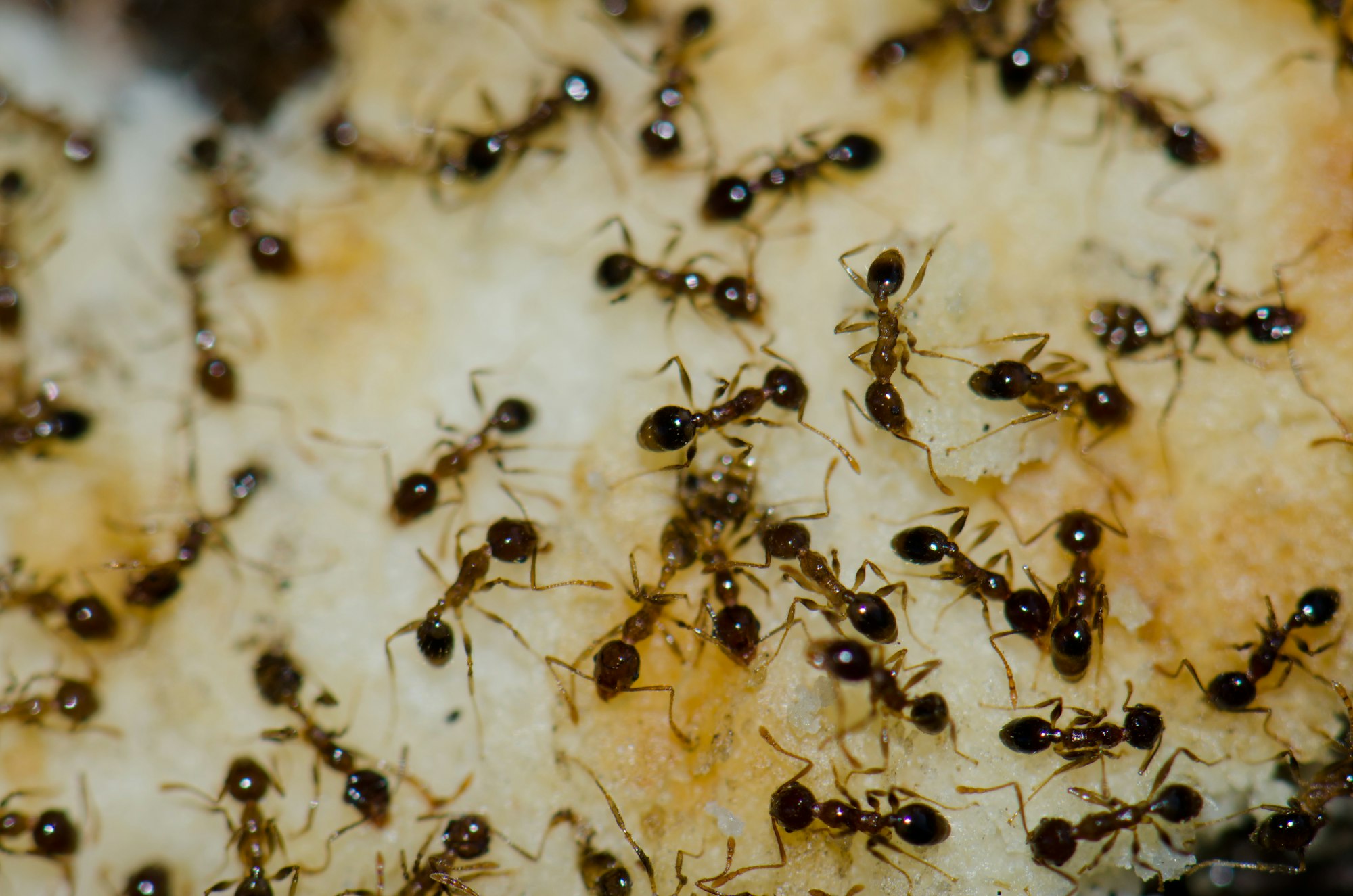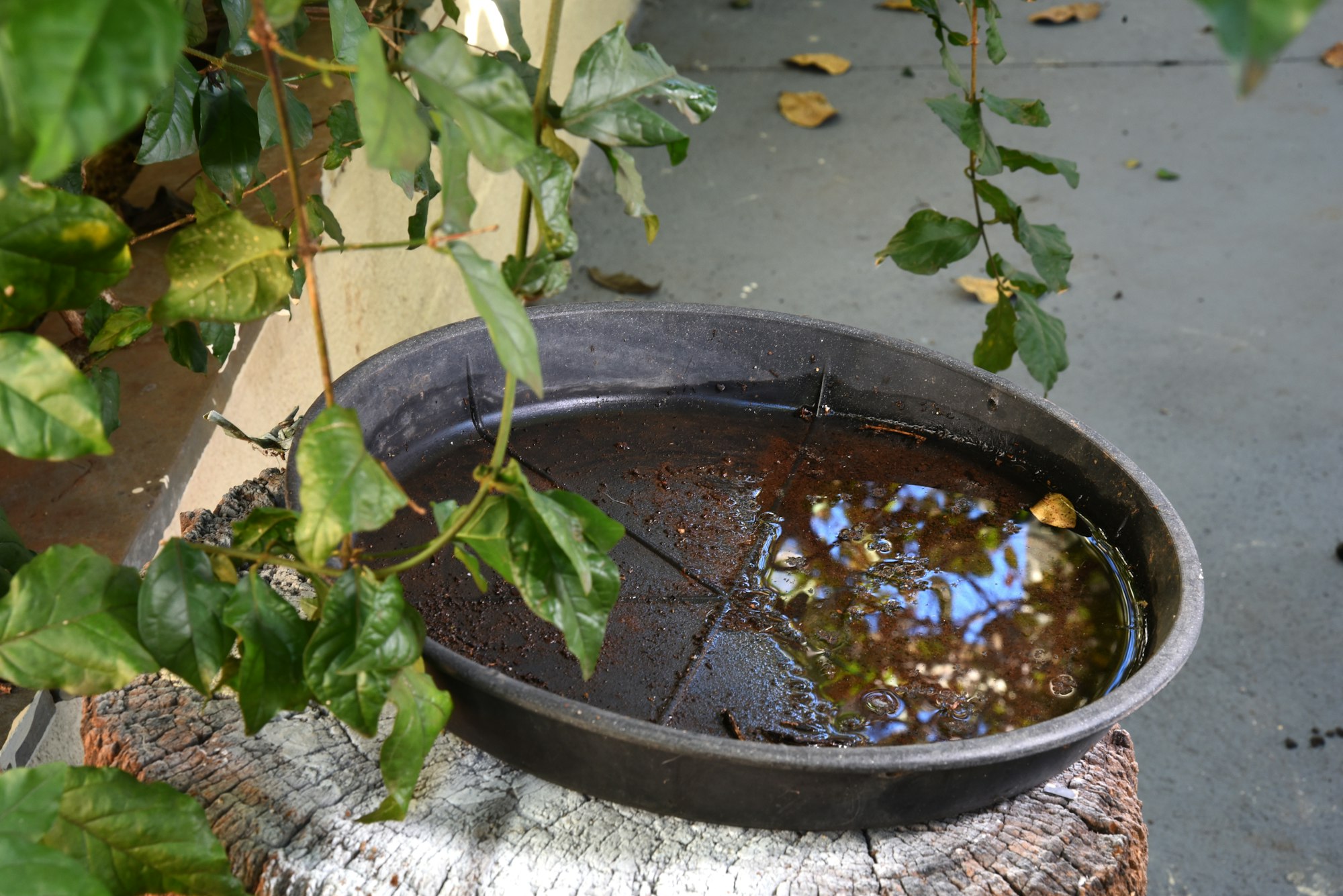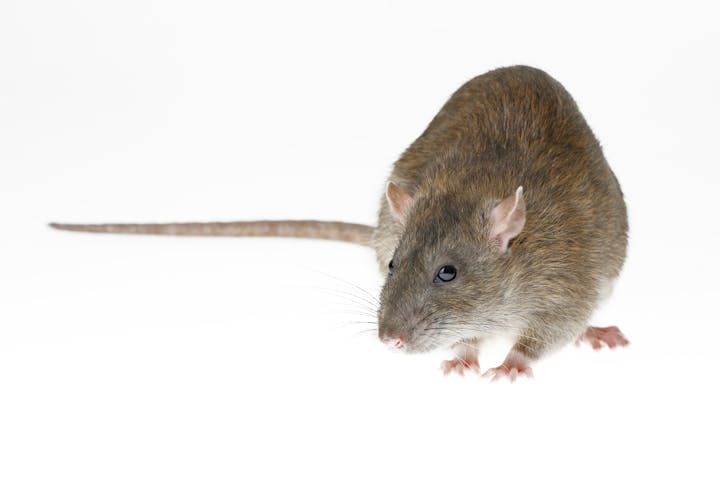January 2024 Newsletter
The Ants Go Marching One by One

Are you battling ants this winter? Even we battle seasonal indoor infestations of Argentine ants at our facilities in Burlingame. These small, dark ants are ubiquitous in urban and suburban areas. We see them forming long trails in the landscaping, tending aphids in the rosebushes, and occasionally wandering around, uninvited, into our offices.
Local research has found that indoor invasions by Argentine ants are less related to what is inside your home and more related to the weather and the season. Research conducted by Dr. Deborah Gordon at Stanford University has shown that Argentine ants in the San Francisco Bay Area invade homes the most during cold, rainy winter weather. It’s not clear why they invade. Possibly the colony is budding, and the new queen and her court are looking for warmer living conditions. Possibly they are hungry and looking for food. While there aren’t clear answers as to why ants invade in the winter, one thing is certain: we wish they wouldn’t.
If you are being invaded by ants this winter, there are steps you can take to repel the invasion:
- Monitor your kitchen, bathrooms, and any food or pet product storage areas for ants.
- Inspect under sinks, in cupboards, and along pipes and electrical wires. Look for large trails of ants – just one or two does not indicate an infestation.
- Follow the trail of ants to figure out how they are getting in and where they are going.
- Block the access points.
- Caulk cracks and crevices both inside and outside that the ants are using for access.
- Check potted plants to make sure colonies haven’t been established in the soil.
- Remove attractants.
- Put food items in containers or plastic bags before they become infested. Throw out any infested food items.
- Wipe down shelves with soap and water.
- Clean bathrooms to remove any residues of toothpaste, mouthwash, or bathing products such as sugar scrubs.
- As a last resort, a chemical control option is ant bait, often sold as “ant stakes” or small pre-filled plastic bait stations. Be sure to follow the directions on the label. If one bait type seems not to work, try a bait with a different active ingredient (the active ingredient is listed on the front of the box).
More information on ant management can be found on the University of California’s Integrated Pest Management website: https://ipm.ucanr.edu/PMG/PESTNOTES/pn7411.html
Flooding or standing water on your property? Keep mosquitoes in mind!

We've already had a few winter storms, and we'd like you to please keep in mind that mosquitoes can breed year-round, even when it is cool and rainy. Check around your yard and home for any containers holding water - dump out standing water to prevent mosquito breeding. Check crawlspaces for standing water - water under a house can breed thousands of mosquitoes.
We're here to help! Please report water that continues to stand 2 weeks or longer after a storm, and always report mosquitoes. One of our certified vector control technicians will assess the water to determine if mosquitoes are breeding. Submit a report or service request using our online form or by calling 650-344-8592.
Tell a friend or neighbor

Friends and neighbors are the the most common way for residents to hear about the District and the services we offer. Can you help us get the word out? Consider forwarding this newsletter to someone who also lives in San Mateo County to let them know about the many services covered by their taxes.
If you have additional ideas on how to get the word out about the District, our Public Health Education and Outreach Officer would love to hear from you. Always feel free to email her at rcurtis@smcmvcd.org or call 650-344-8592.



